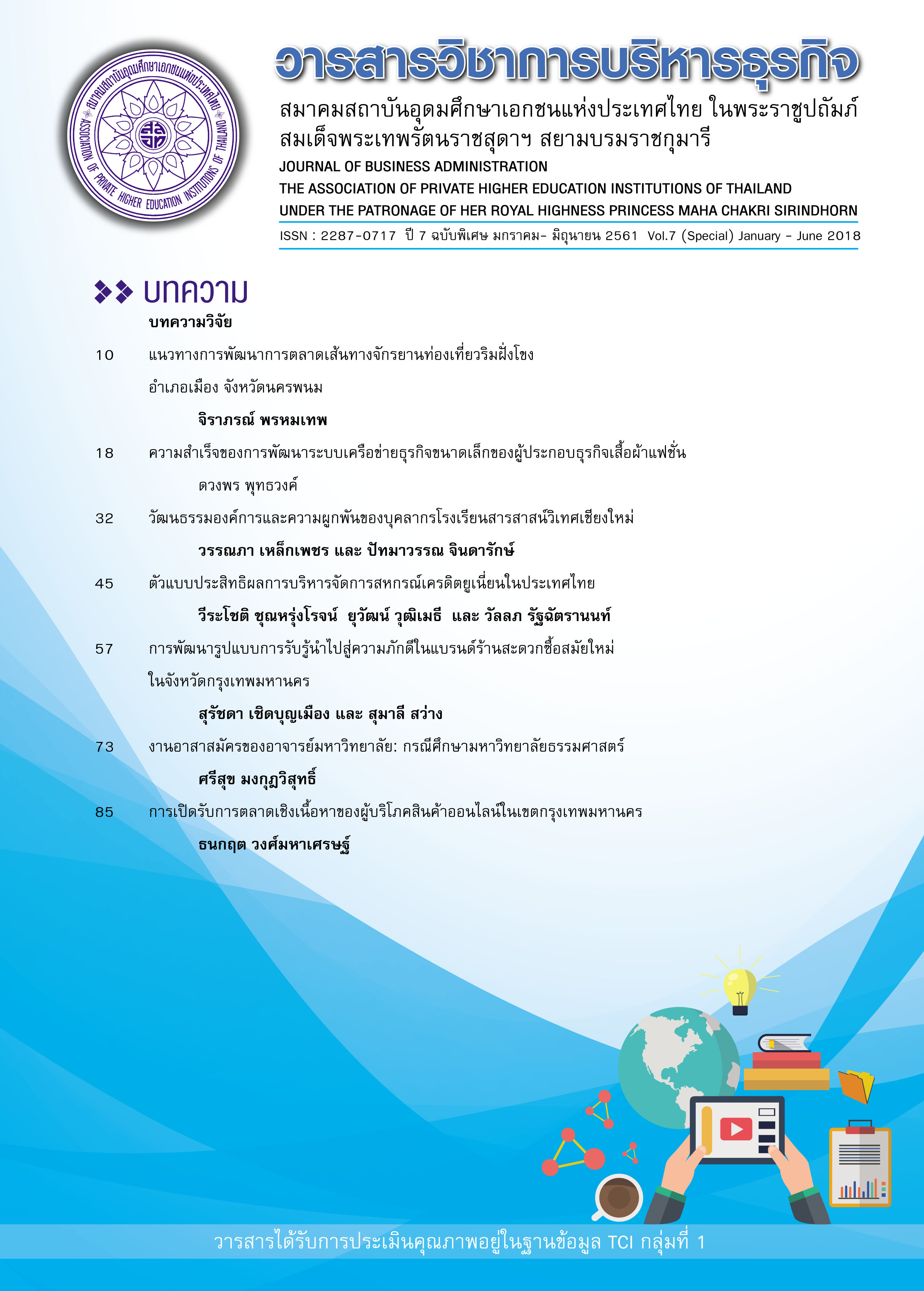Volunteer works of university Lecturers: Case of Thammasat University
Keywords:
Volunteer works, Lecturers, UniversityAbstract
Volunteer works of university Lecturers: case of Thammasat University were the study of
opinion on activities and volunteering project of university’s faculty members. 56 lecturers. From
all participants, and most female were single and most of them were at the age of 36-40 years old
and volunteering activities were having 5-10 years of work experiences. Their opinion towards the
benefits of participating in volunteering activities was that it allows the faculty members to be good
model for students and other people in the university. Furthermore, it also provides opportunity
to see what were really happening in the society, It was a good way to develop volunteer spirit
and create networks. The forms of volunteering activities consultants, lecturers or speakers on
what they are good at. They have defined volunteering activities as volunteering and willing to do
with the intrinsic desire not an additional duty after work to help others, help society, and create
benefit to the society”. It is educational services help disseminate knowledge, sacrifice, energy,
brain, other stuffs etc. This helps creating value, reducing self-identity, and developing public
mind towards the society. Recommendations that support faculty members in participating in
volunteering activities include the development of network of faculty members who have public
mind in order to create space for exchanging information about volunteering project. In addition,
university should support and make benefit from faculty members who have public mind. It was not
only a good model for students, but also makes use of willingness in doing good thing to develop
the university.

Downloads
Published
How to Cite
Issue
Section
License
บทความที่ลงตีพิมพ์ในวารสารวิชาการบริหารธุรกิจ สมาคมสถาบันอุดมศึกษาเอกชนแห่งประเทศไทยต้องเป็นบทความที่ไม่เคยได้รับการตีพิมพ์เผยแพร่ หรืออยู่ระหว่างการพิจารณาตีพิมพ์ในวารสารอื่นๆ การละเมิดลิขสิทธิ์เป็นความรับผิดชอบของผู้ส่งบทความโดยตรง

